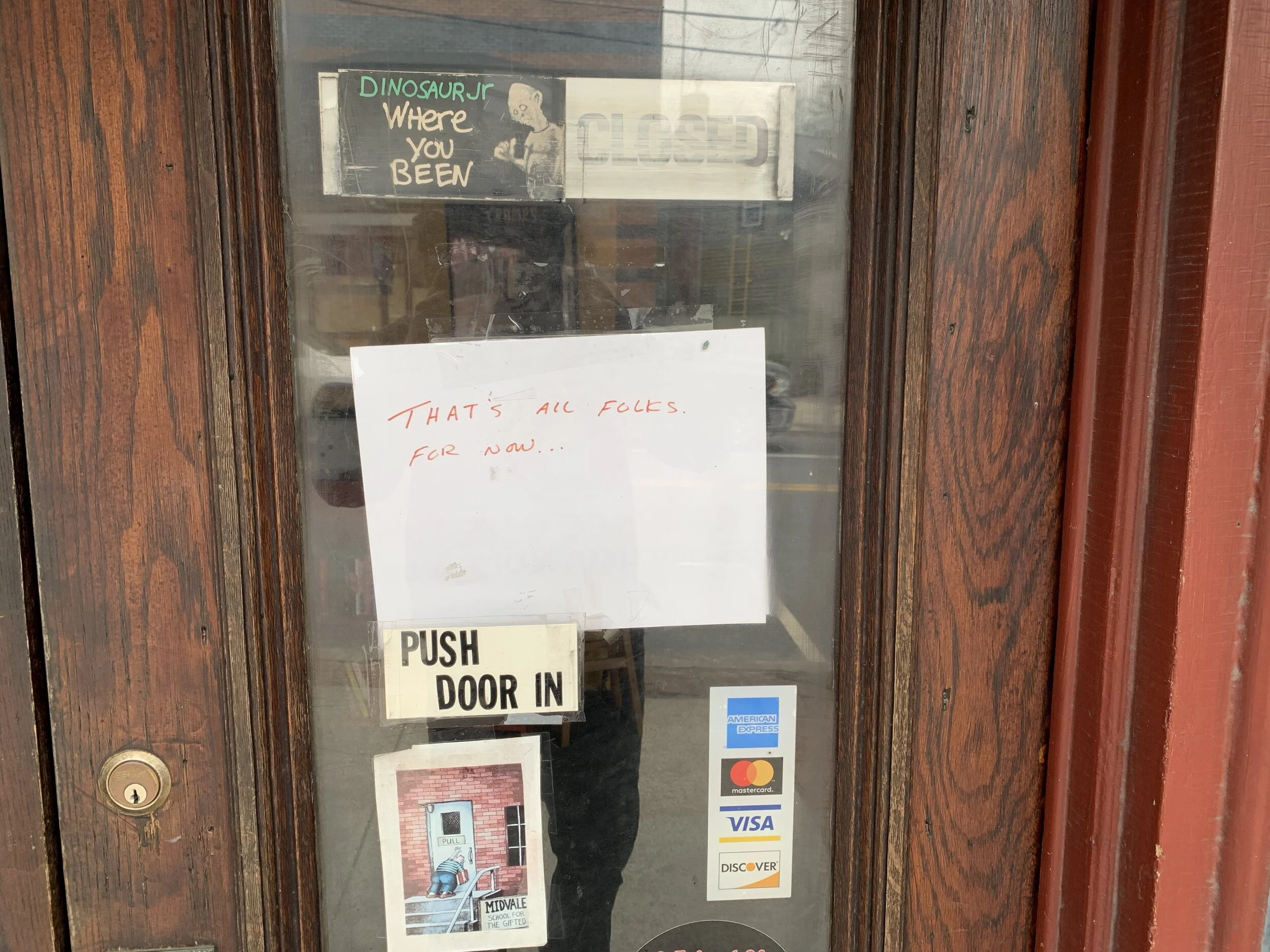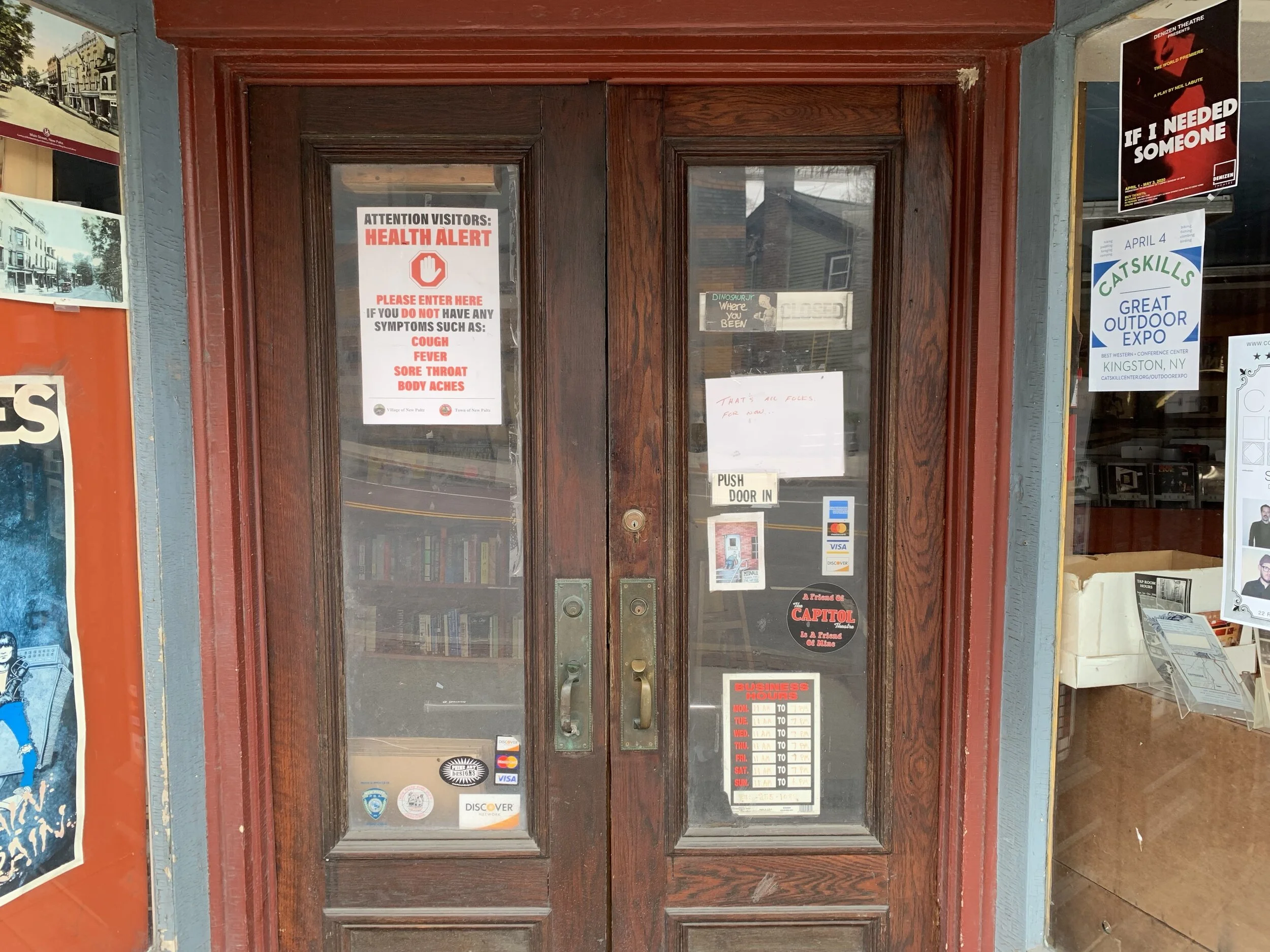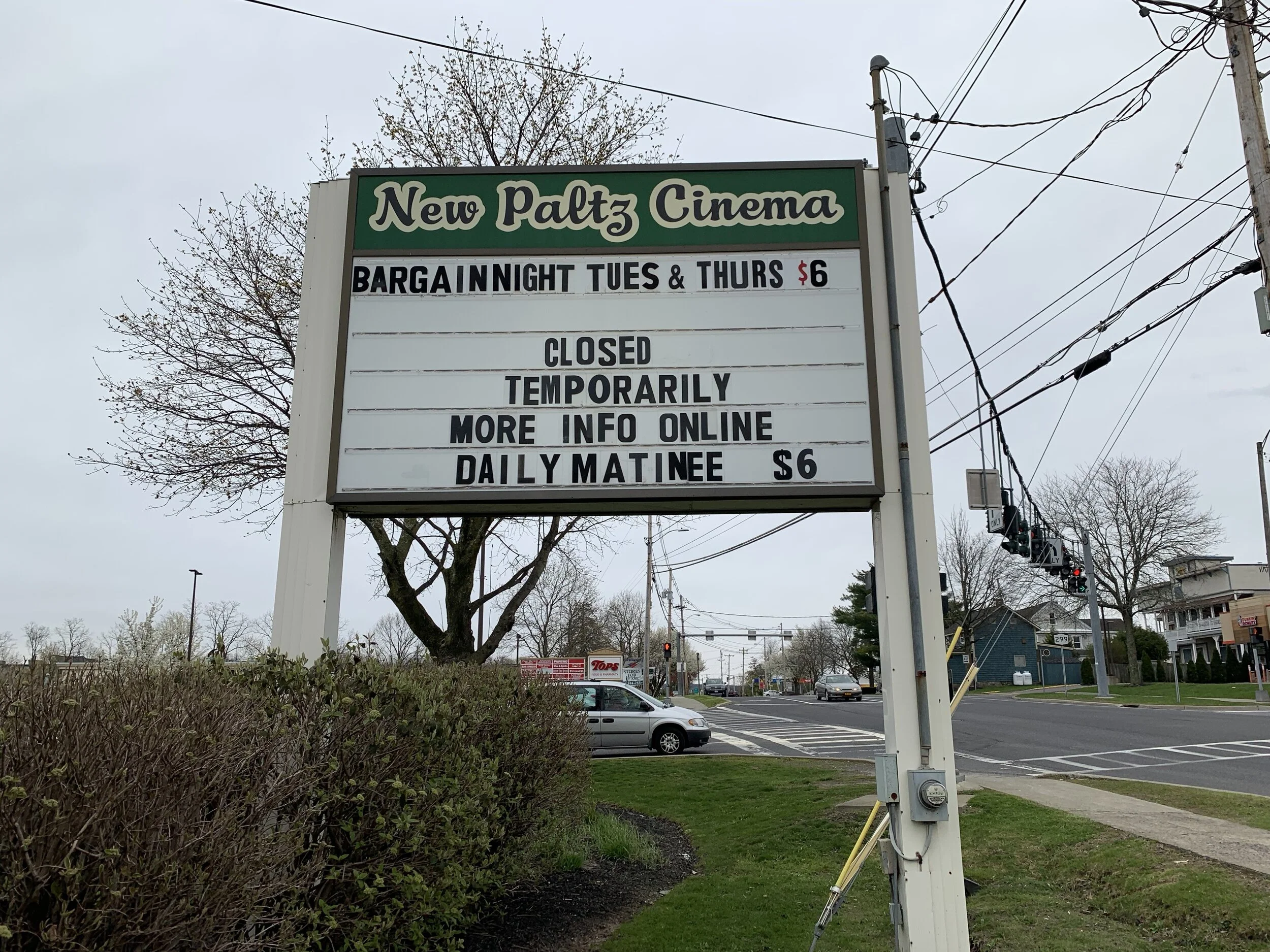How To Manage Stress and Anxiety During The Coronavirus Pandemic
SUBHEAD TK XXXXXX
Health Alert signs posted in windows of small businesses across New Paltz. Photo by Nick Califra
The coronavirus pandemic has completely changed the way you live your life. You are stuck in self-quarantine alone or with your family. Going out to the grocery store to stock up on essential items is a risky and caution-filled endeavor. You have become over-protective of your supply of toilet paper and disinfectant wipes, and run away from anyone who gets within six feet of your social distancing buffer zone.
COVID-19 has consumed the news as infection cases and deaths rise everyday. However, the added stress on you and others in the U.S. is being somewhat lost in translation in the current media frenzy.
According to the American Psychological Association, 62 percent of Americans say they are stressed out about their financial situations and 63 percent of Americans are nervous about where the country as a whole is going in the future. These numbers will most likely rise due to the job and economic insecurity caused by the virus.
The self-quarantine element of the pandemic can also add to your possible stress as the thought of being stuck in a small space with your family, or by yourself, for weeks on end is enough to make anyone go stir-crazy.
However, this matter has not gone completely unnoticed. The Institute for Disaster Mental Health (IDMH) at SUNY New Paltz has released a tip sheet to help manage stress during the coronavirus pandemic. The document gives advice like how to identify the exact thing you are anxious about, how to reflect on it in a healthy way and how to focus on things that you are in control of.
After reading suggestions given by the IDMH, I had some questions that needed expert responses and was curious about other people’s experiences during the pandemic.
I feel I’m doing okay, should I be worried?
The answer is no, says Dr. Karla Vermeulen, the Deputy Director for the IDMH and an Associate Professor of Psychology at SUNY New Paltz.
Reactions differ on a person to person basis due to personality traits and being in different situations. Someone who suffers from higher levels of anxiety might be feeling the effects of this situation a bit more than someone who does not suffer from high levels of anxiety. The same goes for people who are currently looking after a loved one who may be more worried for their health versus someone who does not have any dependents.
“I'm a relatively sedentary person who enjoys working out here and there, so the self-isolation isn't killing me too much,” said Jared LaBrecque, a junior at SUNY New Paltz.
However, these differing personality traits and reactions to the pandemic do not always live harmoniously. “There’s the camp of people saying ‘why are you freaking out?’ versus the camp of people saying ‘why aren’t you freaking out?,’” Vermeulen said.
This can cause conflict and could limit your ability to support one another. The tip sheet advises compassion and sympathy and to not judge yourself or others for having different ways of coping with the current situation.







What can I do to prevent going stir crazy?
“Everything around me seems to reinforce all of the anxiety in my mind of how destructive this virus is,” said Amayah Spence, a sophomore at SUNY New Paltz.
The best thing you can do to fix this and keep your sanity is to do nothing. Limiting your news intake is absolutely critical for having good mental health during this time. “There is no reason to be monitoring news 24/7,” Vermeulen said. “It’s just a constant reminder of the stressors.”
The IDMH tip sheet urges you to choose what news you are absorbing carefully and to be aware of misinformation. The IDMH recommends the Centers for Disease Control website for accurate information and to only check for new information a few times a day.
Maintaining social connections, through things like video calls, is also quite critical to maintaining good mental health. “Just stay connected however you can with people,” said Vermuelen. “And don’t ruminate about the situation because it’s just not healthy or helpful.”
Watching a TV show or listening to music can help you deal with stress and potential insanity from self-isolation as it takes your mind off the current doom and gloom.
Lara Morales, a junior at SUNY New Paltz, has been able to mix maintaining social connections and entertainment by using the Google Chrome extension Netflix Party which allows you to watch a show or movie with your friends and web chat simultaneously.
Taking a walk around your block can also be very helpful just as long as you stay at least six-feet away from other people. According to Vermuelen, who has been baking cakes and breads in her free time, anything that changes your routine up a little bit is good.
And if you are someone whose hobbies and activities consist of depressing subject matter, fear not because you can continue doing that. According to Vermuelen, as long as that subject matter gets your mind off of the current distressing pandemic, continue doing it. This is referred to in psychology as Downward Social Comparison which is all about putting your current situation into perspective and comparing it with one that could be worse.
For example, the coronavirus may be infecting and killing more and more people each day, but at least the zombie apocalypse is not coinciding with it.
It may seem obvious and go without saying, but keeping a positive mindset is also quite important. This can be elaborated on through the use of PERMA, which entails keeping positive emotions, engaging skills, maintaining relationships, having a sense of meaning or purpose, and having feelings of accomplishment from work or hobbies.
“I am the only person in my family who hasn't lost a fair amount of income due to the pandemic so there is extra pressure to provide and pay upcoming bills,” -Takura Sophia-Blaise, a junior at SUNY New Paltz
According to Dr. Stephanie Blaisdell, the Vice President of Student Affairs at SUNY New Paltz, positive psychology can help people cope with adversity and help them flourish at the same time.
Could the United States have a collective mental snap?
“I am the only person in my family who hasn't lost a fair amount of income due to the pandemic so there is extra pressure to provide and pay upcoming bills,” said Takura Sophia-Blaise, a junior at SUNY New Paltz who alleviates stress by playing video games.
The economic downturn caused by the coronavirus, which, according to Politico, has caused people to lose their jobs and file for unemployment, is very concerning. On top of that, The American Psychological Association in 2019 saw an increase in stress on topics like climate change and terrorism while anxiety about the 2020 presidential election has increased from 52 percent in 2016 to 56 percent in 2019. With all of that in mind, could the United States have a collective mental breakdown?
It’s impossible to say for sure at this time. That being said, it’s important to always keep things in perspective. That sentiment is especially true of younger people who maybe don’t have the life experience to put all of this stress into context, said Vermuelen.
For that context, Vermuelen thought back to living in lower Manhattan during the fallout from 9/11. “At that time, it felt like the world was ending and things would never feel okay again. And they did, ultimately, and I think that we’ll get through this in the same kind of way.”
If you are experiencing clinical levels of anxiety or depression please visit with a mental health professional. Tips on finding the right professional help can be found here. The SUNY New Paltz Psychological Counseling Center is offering services remotely and can be reached at 845-257-2920 from 8:30 a.m. to 5:00 p.m.

